Your customers tell you how to improve your products – if you know where to look. Their conversations reveal what’s broken, what’s confusing, and where competitors are getting ahead.
We got an alert from Loris and realized the engineering team had done a release and confused a bunch of customers… that would have probably taken us a week to realize otherwise.

Jon Helin
VP of Customer Support,
Calendly

Product, Customer experience, and Digital experience teams are using different customer insights tools, with different focus areas and with different outputs. The result: Fragmented insights that none of your teams agree on and delays in fixing your biggest issues.
If you don’t have one, consistent way to capture and analyze all customer issues, you won’t understand how your customers really feel about your products and where you can improve.
Loris combines QA and VOC data into a single AI platform, giving you a window into how your customers are experiencing your products, in their own words.
Loris combines different AI models to create deeper and more accurate insights into every conversation, pinpointing your highest priority and most costly product issues. Here’s the right mix that helps you better understand where to improve your products.
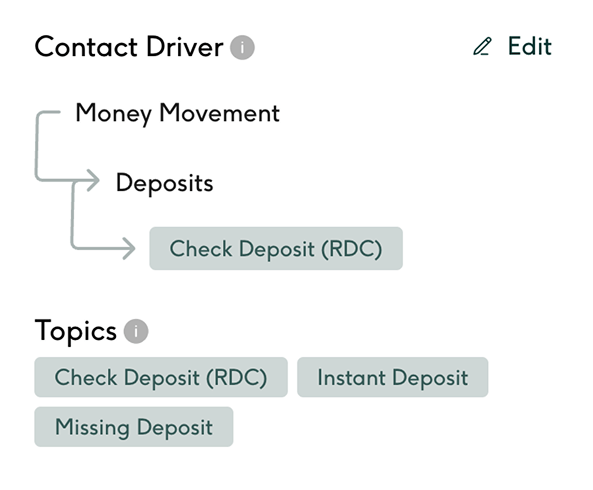
Loris analyzes every conversation – across email, chat, phone, and AI agent interactions – to automatically detect the primary reason driving customer contact (Contact Driver) as well as additional intent signals (Topics). This model is built for every individual client by our data science team, giving you an accurate and complete picture of every issue coming to your CX team.
This insight is the critical source of truth missing your teams need to understand friction between customers and your products. By automating this process, you get an objective, consistent map of every customer issue, helping you understand trends and provide tangible evidence on which issues are impacting the customer experience.
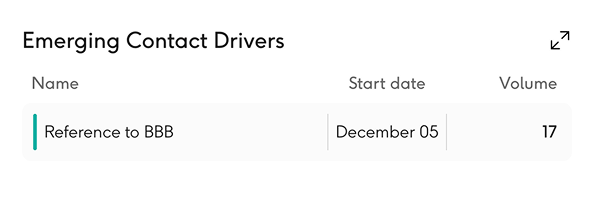
Since Contact Drivers provide a map of every known issue, Loris can easily detect when an unknown issue pops up – even when the number of cases is small. With this knowledge, you can understand how to address, mitigate, or remove new issues you otherwise would have missed.
Loris clients use Emerging Issues to surface everything from product bugs to disconnected contact channels, helping them quickly roll back or mitigate issues before there’s an impact to the wider customer base. This early warning system also prevents spikes in call volume, controlling your costs while improving your experience.
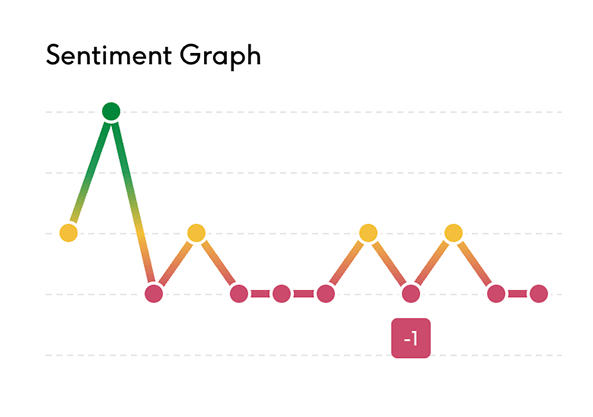
Loris analyzes sentiment on every message and every conversation, helping you see how individual agent responses impacted the customer. Sentiment Delta tells you whether sentiment is increasing or dropping, giving you an easy way to understand customer sentiment by issue at scale. And Sentiment Target provides the focus of the customer’s sentiment, whether directed towards the agent or the company and its products.
Together, these models provide multiple dimensions of customer understanding that can pinpoint product and service issues. They also give you a better understanding of which topics may be easy to automate (neutral-to-positive sentiment delta) and which are best handled by your agents (negative sentiment delta).
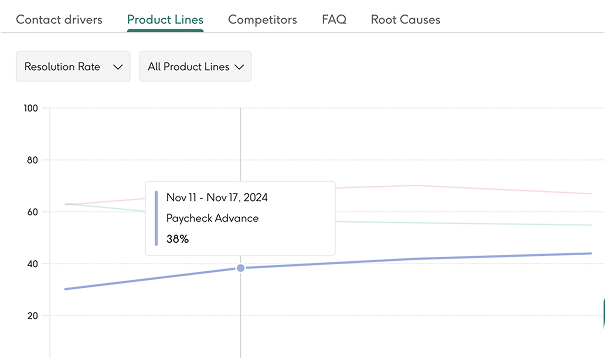
For an even deeper look at how your Products are coming up in conversations, Loris enables you to map both Product and Competitor terms to everything from volume to sentiment to resolution rate to Conversation Quality, our predictive CSAT metric.
This macro view of Product and Competitor trends gives you an easy way to aggregate and analyze customer perception – as well as tie spikes in product mentions to product launches. It also gives you insight into how often competitors are being brought up in your support calls.
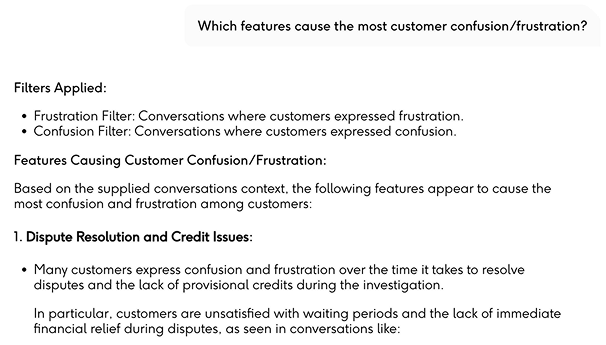
To make analyzing product insights even easier, use Ask Loris – your AI-powered conversation analyst – for everything from general product trends to which features are leading to the most customer confusion.
Ask Loris uses the outputs of the library of Loris AI models to give you the answers to your top product questions in seconds instead of hours or days. This also gives you supporting evidence from individual conversations, so you can go as deep as you need to understand and fix product issues.

Read how brands like Calendly use Loris to:
Schedule a meeting to learn more about how we reduce cost per case while increasing customer insights.